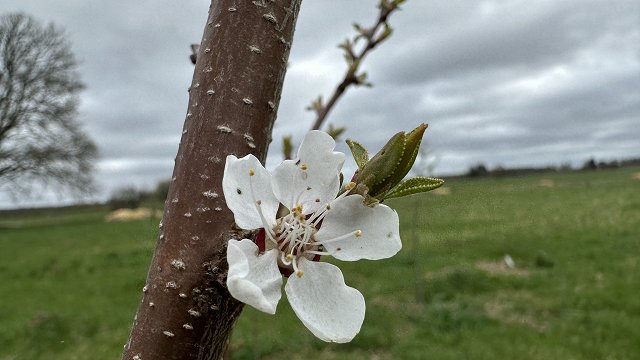Following the vote in the Saeima, the Cabinet of Ministers adopted special rules. They precisely list the codes for goods banned from Russia and Belarus into Latvia.
However, two important products for livestock farmers cannot be found in the regulations.
One of the products is 'sunflower cake'. This product was imported into Latvia from Russia last year and the year before, worth almost €50 million annually. However, not all of these imports have stayed in Latvia.
There are no restrictions on imports of sunflower cake, which is used as a feed additive for laying hens, from Russia because it is difficult to buy elsewhere. They are not produced at all in the EU.
Balticovo, the largest producer of eggs and egg products in northern Europe, buys grain, the main feed for its hens, only in Latvia, but last year purchased 6,500 tonnes of sunflower cake from Russia, the company previously confirmed. The goods were bought from a wholesaler in Estonia.
"There have been cases when the Ukrainian borders have been blocked and we are not able to get this raw material. And then we are in trouble. I myself very much detest the situation that we are then forced to look for alternatives. Then we turn to these European feed ingredient traders and look at alternatives. Yes, unfortunately, we have been forced to buy some of the Russian origin as well," said Toms Auškāps, Member of the Board of Balticovo.
He said that Russia and Ukraine are the biggest producers of sunflower scale in the region. Argentina is still a serious player on the world market, but it does not pay to take the feed that far.
Historically and currently, Balticovo buys its sunflower seeds from Ukraine.
The other feed product that is not banned for import from Russia and Belarus is beet pulp with molasses. Last year, more than €25 million worth of this product was imported into Latvia from Russia. Not all of this volume likely remained in Latvia.
Beet pulp with molasses is used for cattle and pigs.
Guntis Gūtmanis, Chairman of the Board of the Cooperation Council of Agricultural Organisations, said that farmers were united in not buying from Russia and Belarus, but acknowledged that there were very limited possibilities to substitute these products.
"We have asked our colleagues who cooperate with Ukrainian farmers that molasses could be brought from Ukraine. We have been waiting for concrete offers for more than a month. We have sent recipes that meet our needs. We understand that it would be more expensive, but we would be willing to buy these products, but they cannot be physically delivered to us," Gūtmanis explained.
According to the Ministry of Agriculture, the two exceptional products account for 51% of the total volume of agricultural and food products of Russian origin imported into Latvia last year. So the import ban does not work at all for half of what was imported into Latvia last year.
The Minister believes that it was important not to cut off all imports from Russia and Belarus at once, but to give businesses a transition period so as not to disrupt the production process.
"Businesses are reorienting themselves, and I already know that they are, they are looking for alternative supply routes. That is why we did not include these products in the list, so as not to cause problems for the industry and so that they can fully feed their livestock," the Minister explained.
























